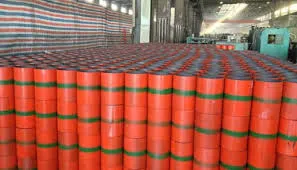- Afrikaans
- Albanian
- Amharic
- Arabic
- Armenian
- Azerbaijani
- Basque
- Belarusian
- Bengali
- Bosnian
- Bulgarian
- Catalan
- Cebuano
- Corsican
- Croatian
- Czech
- Danish
- Dutch
- English
- Esperanto
- Estonian
- Finnish
- French
- Frisian
- Galician
- Georgian
- German
- Greek
- Gujarati
- Haitian Creole
- hausa
- hawaiian
- Hebrew
- Hindi
- Miao
- Hungarian
- Icelandic
- igbo
- Indonesian
- irish
- Italian
- Japanese
- Javanese
- Kannada
- kazakh
- Khmer
- Rwandese
- Korean
- Kurdish
- Kyrgyz
- Lao
- Latin
- Latvian
- Lithuanian
- Luxembourgish
- Macedonian
- Malgashi
- Malay
- Malayalam
- Maltese
- Maori
- Marathi
- Mongolian
- Myanmar
- Nepali
- Norwegian
- Norwegian
- Occitan
- Pashto
- Persian
- Polish
- Portuguese
- Punjabi
- Romanian
- Russian
- Samoan
- Scottish Gaelic
- Serbian
- Sesotho
- Shona
- Sindhi
- Sinhala
- Slovak
- Slovenian
- Somali
- Spanish
- Sundanese
- Swahili
- Swedish
- Tagalog
- Tajik
- Tamil
- Tatar
- Telugu
- Thai
- Turkish
- Turkmen
- Ukrainian
- Urdu
- Uighur
- Uzbek
- Vietnamese
- Welsh
- Bantu
- Yiddish
- Yoruba
- Zulu
api 5ct coupling
Understanding API 5CT Coupling A Comprehensive Overview
API 5CT is a crucial standard set by the American Petroleum Institute (API) that outlines specifications for casing and tubing used in the oil and gas industry. One of the essential components of this standard is the coupling, an integral part in ensuring the integrity and efficiency of oil and gas wells. In this article, we will explore the significance of API 5CT couplings, their design, applications, and the critical role they play in the oil and gas sector.
What is API 5CT Coupling?
API 5CT couplings serve as connectors that link together segments of casing or tubing. These couplings can be manufactured from various materials such as carbon steel or alloy steel, ensuring they can withstand the challenging conditions encountered in oil and gas extraction, including high temperatures and pressures.
The compatibility of these couplings with the associated casing and tubing is crucial. They are designed according to specific dimensions, including outer diameter and thread specifications, to fit perfectly with specific grades of casing and tubing as defined in the API 5CT standard.
Importance of Couplings in Oil and Gas Operations
Couplings are not merely connectors; they are critical components that ensure the structural integrity of oil and gas wells. Here are some reasons why API 5CT couplings are essential
1. Structural Support Couplings provide the necessary support to maintain the alignment of casing and tubing strings. A well-aligned wellbore is crucial for effective drilling and extraction operations.
2. Pressure Resistance Given the high-pressure environments in which they operate, couplings must be capable of withstanding significant stress. API 5CT standards ensure that couplings are tested and meet rigorous pressure criteria, thus reducing the risk of failures down the line.
api 5ct coupling

3. Sealing Couplings must also achieve a proper seal to prevent leaks of fluids and gases. Poor seals can lead to environmental hazards and loss of production efficiency, which can be financially detrimental to operations.
4. Corrosion Resistance Oil and gas extraction often involves corrosive substances. API 5CT couplings can be treated with various coatings to enhance their resistance to corrosion, ensuring longevity and reliability.
Different Types of API 5CT Couplings
Couplings are categorized based on their design and the threading systems they employ. The major types include
- Threaded Couplings These are designed with threads to allow for easy connection between casing or tubing sections and are commonly used in various operational environments. - Welded Couplings These couplings are welded onto the casing or tubing sections, providing a strong and permanent connection, often utilized in situations where stability is paramount.
- Specialty Couplings Designed for unique applications, these couplings may come with additional features tailored to specific environmental conditions or operational requirements.
Conclusion
API 5CT couplings play a foundational role in oil and gas operations by providing secure, resilient connections between tubing and casing. The adherence to API 5CT standards ensures the quality and performance of these critical components under the demanding conditions typical of the industry. As exploration and production activities continue to evolve, the development and refinement of coupling technology remain vital to enhancing the safety, efficiency, and sustainability of oil and gas extraction.
In summary, understanding API 5CT couplings is not just about grasping a technical specification; it encompasses an appreciation for the complexities and challenges inherent in the oil and gas industry. A robust coupling is pivotal to the success of drilling operations, ultimately facilitating the effective harnessing of natural resources.
-
Well Casing Extension Couplings – Applications and InstallationNewsJun.06,2025
-
Types of Crossover Subs in Drilling & CompletionNewsJun.06,2025
-
Key Features of High-Quality Tubing Pup JointsNewsJun.06,2025
-
Installation and Maintenance Tips for Steel Couplings for PipeNewsJun.06,2025
-
How to Select the Right Pup Joint for Oil & Gas OperationsNewsJun.06,2025
-
Applications of Stainless Steel Pipe CouplingsNewsJun.06,2025







